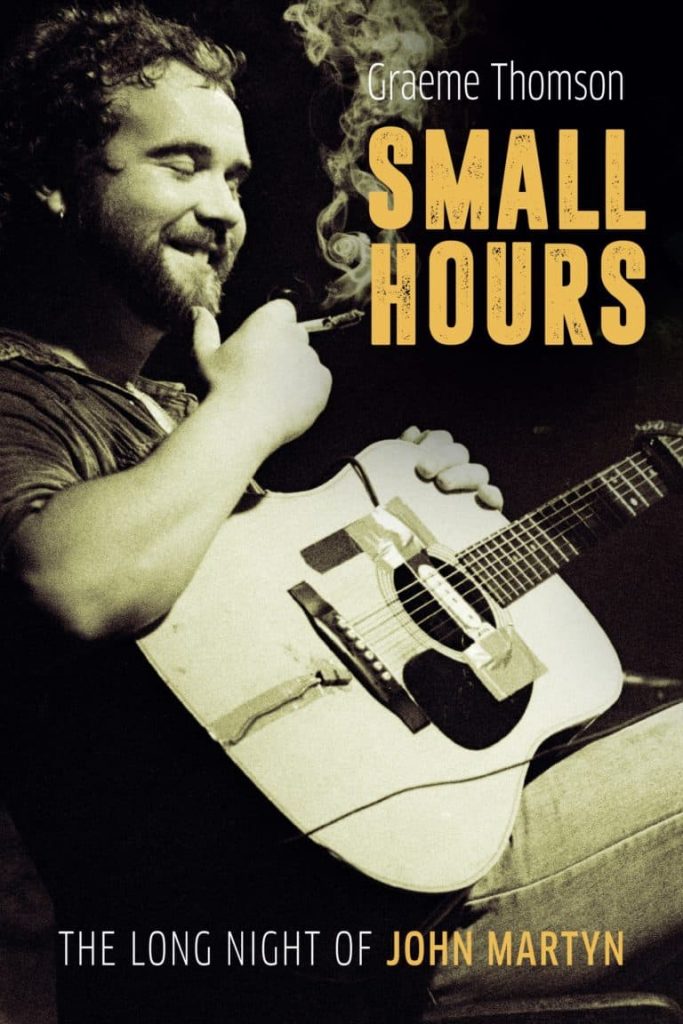In the second of this week’s exclusive performances marking the publication of Small Hours, Graeme Thomson’s new biography of John Martyn, Olivia Chaney performs the traditional English folk song, Spencer The Rover, recorded by Martyn on his 1975 album, Sunday’s Child.
Olivia says of the song: ‘I came to John’s version via Shirley Collins. I loved how John made the folk song his own – you can hear in several of the lines how deeply self-referenced it is: “On the fifth day of November, I’ve a reason to remember.” All the lines about rambling, confusion, etc. He obviously massively related to this song and its old meaning. The line, “as valiant a man as ever left home,” I read that as almost bitter in self-irony, parody, regret. Also for me about to have my own child, living in Yorkshire, the song took on an extra layer of significance!’
From Small Hours:
On an album where the tapping of folk sources was more overt than usual, the highlight is Spencer The Rover, a venerable traditional song with its provenance in East Sussex and Yorkshire, and which Martyn learned from one of the latter county’s many fine folk singers, Robin Dransfield. Martyn was particularly enamoured with it. The following spring, the song gave its name to his second child, christened Spenser Thomas McGeachy.
‘He initially asked me to sing on Spencer The Rover,’ says Martin Carthy. ‘Nothing came of it, in the end. Don’t know why. It tells you a lot about him that he loved that song so much. It spoke to him. It’s a very grown-up song. I never understood it when I was twenty; when I was forty I did. The results were very true to the song, but very John.’
He sang it with rapturous tenderness on Sunday’s Child, and many times more on stage in the years thereafter. Though he did not write the words, in his hands they read like wishful autobiography. In its empathetic depiction of a man who has been ‘much reduced’ and ‘caused great confusion’, one can hear a romanticised echo of Martyn’s own transgressive wanderings.
In the song, Spencer has abandoned his family and embarked on a troubled, aimless ramble around the countryside. In Yorkshire, he beds down for the night in a forest. After a restless sleep, punctuated by dream-sent voices imploring him to go home, he returns to the family fold, a near-stranger welcomed lovingly back into their arms. Spencer is thereafter resolved to a future filled with nothing more taxing than taking his children upon his knee and listening to their ‘prittle-prattling stories’. It is a song about setting aside youthful appetites and wild schemes to instead settle for the simplest and most enriching rewards.
For Martyn, such home comforts were fleeting and rare. Though they were similarly cherished, at least in theory, they offered only temporary respite. The song smooths out the edges of his cavalier ways. Perhaps that’s why he cradles it like precious cargo. It offers a glimpse of another path, impossible to follow but close enough to touch. He could never have written the words, but he sings them as sacred text. The performance is so powerful partly because it offers the happy ending his own actions denied him.
Small Hours is published on Thursday, 9 July 2020 by Omnibus Press.
Pre-order Small Hours – Hardback: Amazon | Kindle: Amazon
Read and watch the previous book extracts and performances here.

Photo Credit: Rich Gilligan
